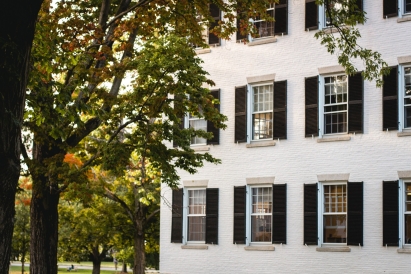
Drill at Dartmouth
After returning from the Arabic LSA in Morocco, I had the opportunity to teach Arabic drill at Dartmouth. In this post, I want to provide you with some information about languages and drills on campus.
In every language program at Dartmouth, students in the first-year sequence (classes in the fall, winter, and spring) must participate in a program called drill between 2-4 times a week, depending on the language. Drill uses a strategy called the Rassias method, named after Dartmouth professor John Rassias, who popularized it. Essentially, drill emphasizes repetition and constant speaking of the target language. Rather than focusing on comprehending every sentence students speak, they are just encouraged to repeat after the instructor in order to sharpen their ears to the sounds and structure of the target language.
The process of applying to be a drill instructor took about a week - after 3 days of tryouts (about 2 hours of commitment each day), we were notified about whether or not we received the instructor position. Due to the large number of introductory Arabic students this year (woohoo!), there were enough classrooms for all those who tried out to get their own drill session. After finishing my second week of drill instructing, I feel that I've got a good sense of what the process entails.
At 7:45am Mondays through Thursdays, me and my session use a lecture hall to go over pronunciations and Arabic letters. Since my students have only been learning Arabic for a few days, the emphasis is on correct pronunciation of individual letters, and exploring different ways that those letters are connected. After I say a sentence or word (all of which can be found on a lesson plan given to me by the Arabic language teachers), I encourage the group to repeat after me and try to give tips on their pronunciation. In addition, we've practiced basic conjugations; for instance, how to say 'his book' as opposed to 'her book'. Arabic is a really fun language to learn due to the many consistencies and rules that exist within the Arabic framework – thus, I can really sense the excitement in my students.
Furthermore, drill is a really useful way to not only practice the language, but to meet other people! Most of my section are '26s, which helps me to meet people outside of my class who I wouldn't have met otherwise. I'm really excited to continue with drill this term; although many students complain about the extra time commitment of drill, it definitely opens up a lot of opportunities to better internalize a language and meet new people.
















